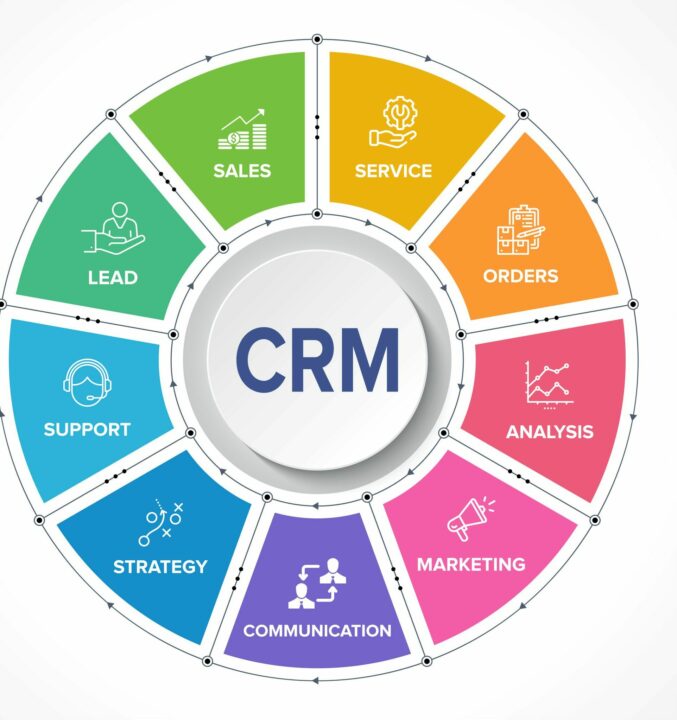CRM stands for “Customer Relationship Management” and is a kind of software system that essentially helps businesses to easily keep track of communications and nurture relationships with clients and leads. There are various different CRMs that provide different kinds of features. Your pick for CRMs depends on what functionality you are looking for, but overall, CRMs at baseline present a way to augment your business workflows.
Strip a CRM down to its basic functionality of storing client and lead information, it may appear no better than a spreadsheet. While it may be true then, a spreadsheet becomes unwieldy when your contacts number in the hundreds. Maintaining such a spreadsheet requires too much manual work and ultimately slows down productivity. After setting up a CRM, all of this becomes mostly automatic with a few manual inputs required here and there depending on the CRM.
But that is just the tip of the iceberg…
CRM Functions
One of the biggest draws of CRMs is its ability to organise data. This streamlines workflows to easily find data on clients and leads. This organisation is not limited to a single sales pipeline though. A good business knows good inter-team collaboration. CRMs can act as a sort of hub for client and lead data allowing marketing and sales teams easy access to the exact same data. This makes working on the same page much easier.
This organisation of data allows for better personalisation since marketers and sales reps can easily see small little details about each and every one of their leads. Tracking things such as lead interest can also be done by CRMs which track dynamic interactions such as opening emails or clicking on links that businesses usually can’t collate as easily. This is key to lead scoring where every interaction can be stored and weighted.
Some CRMs allow functionality for marketing automation. They can automatically send emails to leads who click on links or they can tag leads who fulfilled certain criteria as interested, opening up the optimal time for sales reps to step in. Functionality extends beyond just emails as it can also post and track social media posts.
Alongside marketing automation CRMs, there are CRMs that automate workflows. They handle mundane tasks such as recording data, certain business aspects of the sales cycle, and scheduling follow-ups among other things. This allows your workers to focus on more creative, high-skill tasks.
Finally, built-in analytical tools in many CRMs allow better customisation of marketing campaigns and sales tactics. This can be used to track attribution and provide insights into the customer experience. Some CRMs employ machine learning to identify patterns in successful sales interactions and lend such insights.
Functionality varies by the CRM and so does the price. Even so, knowing what you can do with a CRM can enable more informed choices.
CRM Applications
True to its name, CRM remains to its core a customer relationship manager. With access to past customer interactions, sales receipts, and other insightful details into clients, CRMs enable better customer service. Theoretically, access to this sort of information allows businesses to better tackle issues that customers bring up as well as realistically cater to customers on an individual level. CRM’s analytical insights can be used to assess procured leads and can be leveraged to promote loyalty in clients.
Automated sales reports can be used to assess clients and hint at further opportunities. They can also be used to assess worker performance. Since each interaction can be logged if tied to your telecommunications software, each employee’s interaction is tagged and successful leads can be compared. Analytical tools can be used to identify possible weak areas so that workers can be more specifically trained.
CRMs create a sort of hub for data that can then be used to follow up using the same platform. CRMs are built to track customer interactions, but they can also be used to initiate customer interactions, providing advice on the best opportunities and strategies. This centralised hub of data makes finding data much more efficient and makes referencing data later on a breeze. The pros of a centralised database also means that the entire business can have access to it and thus teams can work in tandem with each other.











